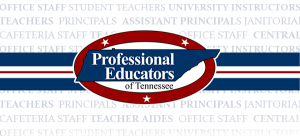It is essential to treat teachers as professionals as they help students think critically and develop a love for learning. The focus should be on elevating teachers' voices and judgment and allowing them to create a rich and fulfilling learning experience for their students. We have made education too standardized and diminished the role of educators in the process. Educators need room for creativity or variation to connect with students and respond to their unique needs.
A teacher and education blogger from Georgia, Vicki Davis, wrote: “In our rush to make teachers accountable, we have made them accountable for the wrong things. We are pushing them to turn kids into memorizing automatons who remember a lot of facts only to forget them right after the test.” It is essential to recognize that children are not widgets, so education reforms aimed at making better widgets are (not surprisingly) a failure. Teachers are not widgets, either.
Teachers are more than just content deliverers; they are facilitators of learning who can inspire and engage students. When confined by inflexible curricula, their expertise may be underutilized, leading to a lack of enthusiasm in the classroom. Understanding that education is a dynamic process that requires adaptability is crucial. With freedom, educators can fully meet their students' diverse needs.
The challenges surrounding school curricula highlight a significant gap between the materials provided and the actual needs of teachers and students. A curriculum that doesn't allow for personalization can result in a one-size-fits-all approach that overlooks individual learning styles and cultural contexts, thereby failing to meet the unique needs of each student.
Many educators feel that off-the-shelf materials often lack relevance and inclusivity, essential for engaging a diverse student body. When curricula are designed without input from those directly involved in the classroom, they may not resonate with students' experiences and perspectives.
Additionally, the importance of professional development cannot be overstated. It is a crucial support system for teachers, helping them modify the materials to fit their classrooms. Without adequate training and support, the profession will not grow continuously.
Curriculum developers and educators should collaborate more strongly to address these issues. Involving teachers in the development process ensures that materials are practical and user-friendly. This collaborative approach values educators' expertise and empowers them to improve the curriculum. Additionally, providing ongoing professional development would enable teachers to use curricula more effectively, benefiting student learning outcomes.
The design and implementation of curricula can vary significantly based on various factors, including state standards and district policies, but rarely individual teacher preferences. A well-structured curriculum should align with state standards and provide a clear roadmap for educators to follow. This alignment is crucial for ensuring students obtain the necessary knowledge and skills for their specific grade level and subject area, but educators also need some flexibility.
However, the variability in how curricula are rolled out and utilized can lead to inconsistencies in educational quality. In some districts, a robust support system may include training and resources to help teachers effectively implement the curriculum. In others, teachers might be left to navigate the materials independently, potentially resulting in a disjointed educational experience for students.
Moreover, the flexibility of a curriculum is crucial. It should allow teachers to adapt lessons to meet the needs of their classrooms, considering factors like varying learning styles, cultural backgrounds, and individual student experiences. Teachers empowered to modify the curriculum can create a more engaging and relevant learning environment for students. Excellent in arguing for universal vouchers and pushing differentiation in education, Governor Lee wants even more standardization in public education.
A successful curriculum should meet state standards and resonate with teachers and students, fostering an inclusive and practical educational experience. We must strive for excellence in curriculum design and implementation while allowing educators to use their expertise to do what’s best for their students. Tennessee urgently needs to reduce its reliance on out-of-state organizations, contractors, and bureaucrats to restore teacher and parent autonomy.
Empowering teachers to innovate and adapt is crucial for a more effective educational environment. This involves guiding without being overly prescriptive and supporting collaboration and creativity. Valuing teachers as professionals improves the educational experience for both educators and students. Let's amplify the teacher's voice in education!
##
JC Bowman is the executive director of Professional Educators of Tennessee.











